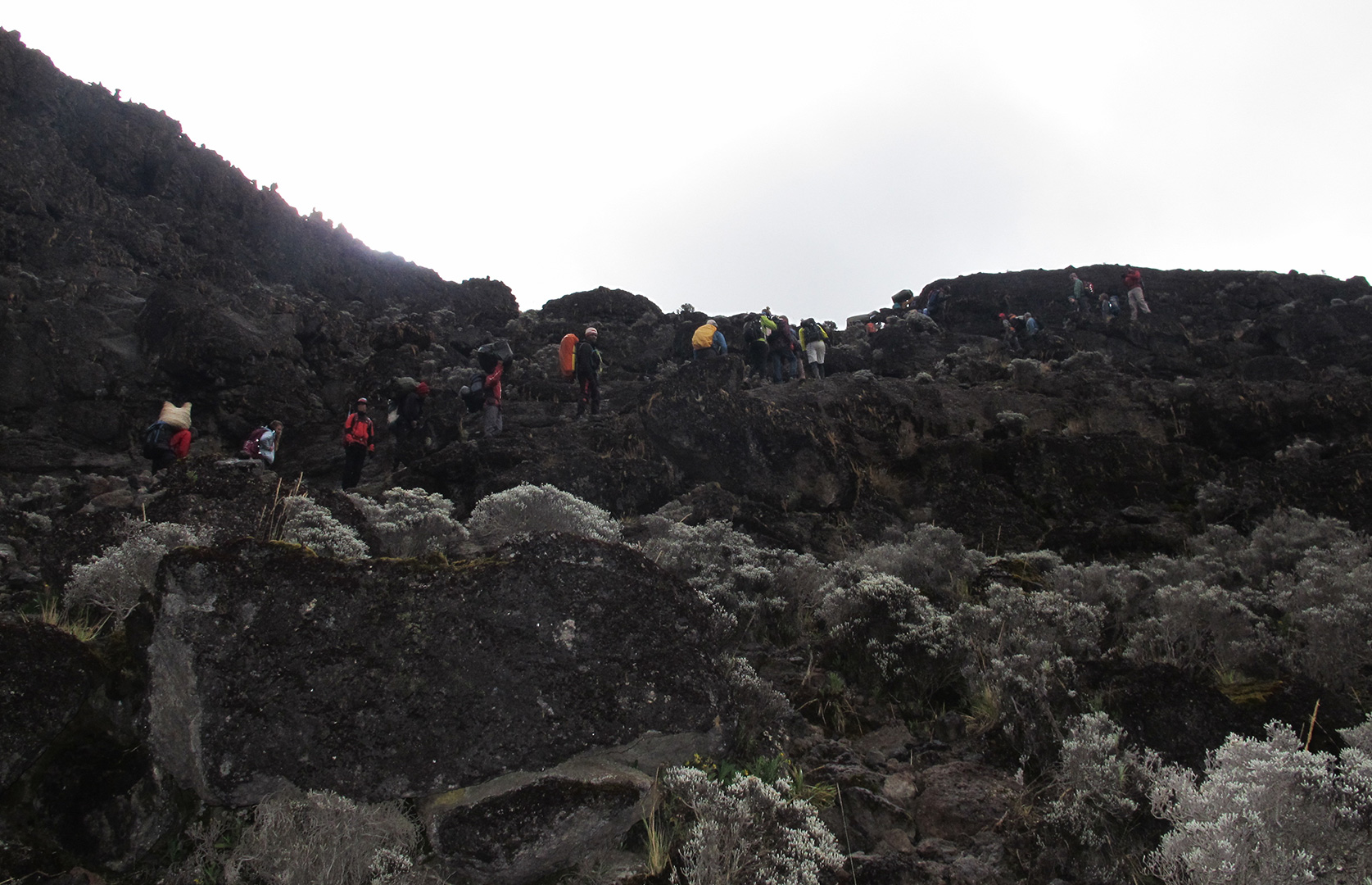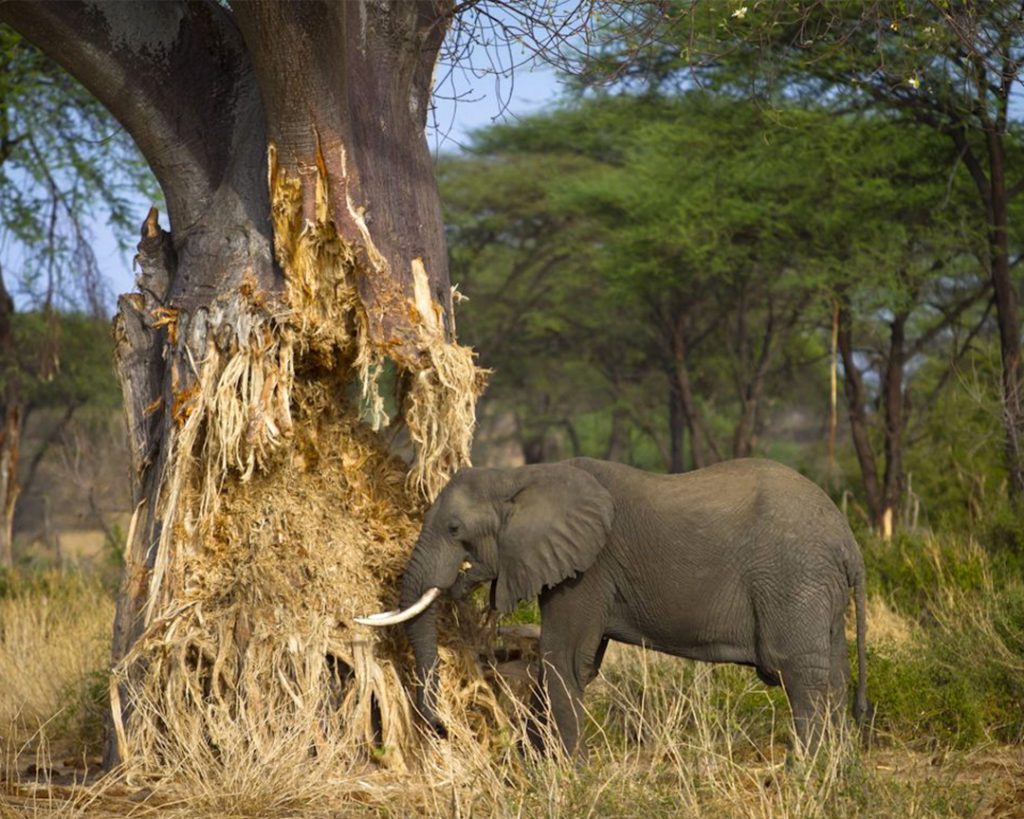The Umbwe Route is the least used, least crowded route on the mountain. For good reason, it is also the most difficult route on the mountain. Umbwe is a steep, constant, straight climb to the top.
Umbwe is mostly avoided because the ascent profile does not give climbers much time to adjust to the altitude. The success rate is very low.
The route takes six days minimum to complete, although seven days is recommended. The descent is down Mweka, on the southeast side of the mountain. Umbwe is not as scenically varied as Machame, Lemosho and Shira, because the path up and down is nearby.
The Umbwe is ideal for those who want a challenging climb, and are very confident in their ability to trek over consistently steep slopes. Also, Umbwe is for those who are experienced at altitude and thus are confident that the punishing schedule of Umbwe will not impede their ability to adjust to altitude. Umbwe is also for those who want a secluded hike.


